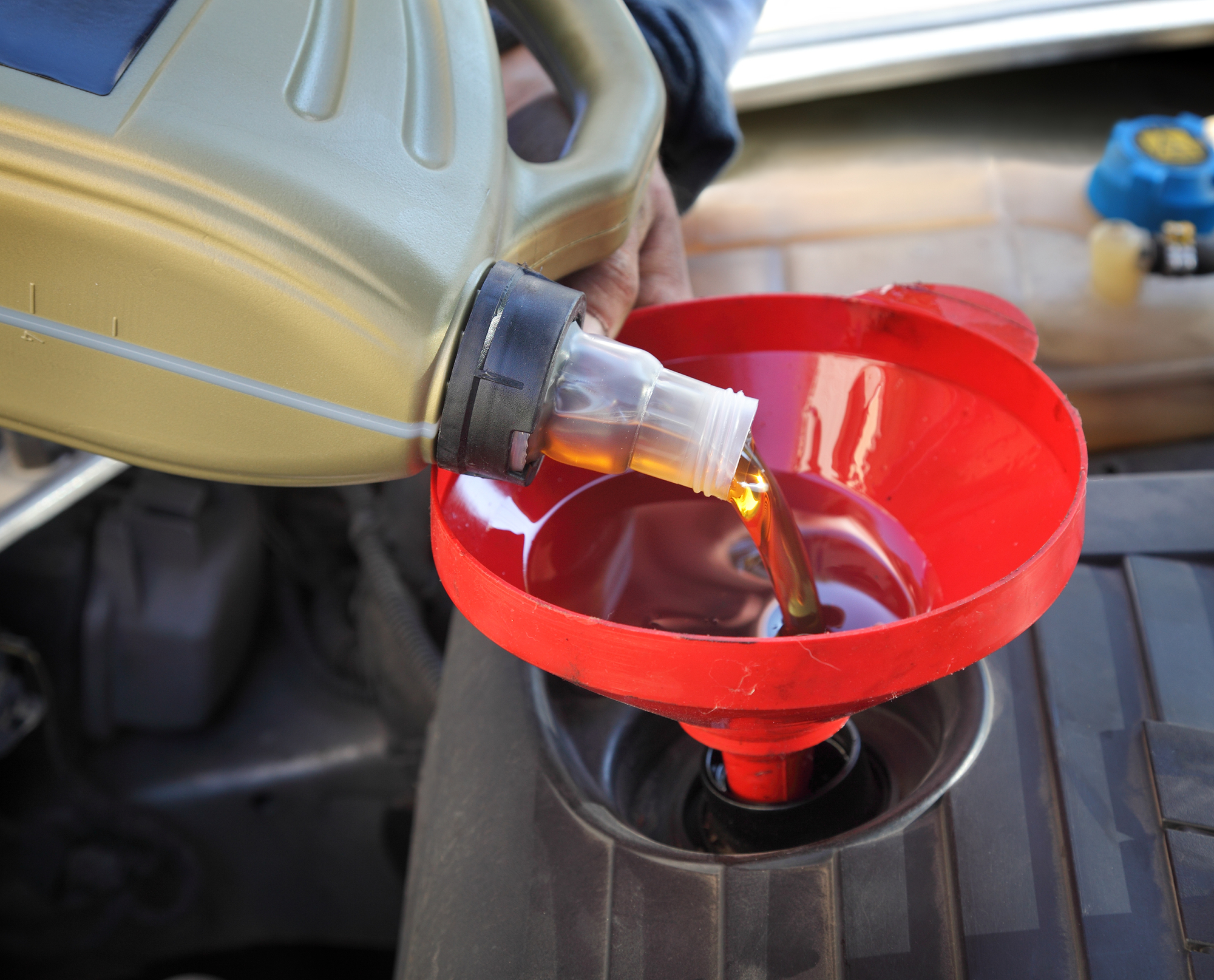When it comes to car maintenance, engine oil is crucial, especially making sure you don’t use the wrong oil. When the moving components and parts that make up the engine come into contact, they generate friction, which produces heat. Eventually, the strain of friction and heat causes key components to degrade and fail. Keeping these parts lubricated with the appropriate engine oil provides critical protection by reducing friction.
The brand of motor oil you use doesn’t necessarily matter; it’s the viscosity grade that’s important (for example: 10W-30). You should only use the motor oil that your vehicle’s owner’s manual stipulates. In other words, if the owner’s manual says to use synthetic oil, use it.
So, what happens if you use the wrong oil?
Oil Leaks
Using synthetic oil in the wrong engine can cause gaskets and seals to leak. Oil leaks accumulating under the car and white smoke coming from the exhaust could be signs that you’ve used the wrong oil.
Engine Noises
Engine oils that are not able to adequately coat moving parts can frequently cause engine noises. Tapping or knocking noises coming from the engine, particularly when you start the car up or in cold weather, are indicators of inadequate lubrication. The engine oil’s viscosity denoted by a number accompanied by the letter “W”) represents how easily oil flows at a given temperature. The lower the viscosity number, the thinner the oil. What this means is that your vehicle will most likely take a long time to start (if it starts) at frigid temperatures if you use the wrong oil in your car.
Reduced Fuel Economy
While low viscosity oils may result in engine noise, etc., oils that are too thick create a whole different set of problems, including impaired performance. Even though the drop in engine output connected with motor oil that’s too thick can be impossible to detect, an abrupt decrease in fuel economy after an oil change could signify that the wrong oil was used.
Shorter Engine Life
Motor oil that’s too thick won’t flow into areas that thinner oil will. When this happens, the resulting metal-on-metal contact will start wearing away at engine parts. On the other hand, oil that’s too thin may not have the sheer-resistance required for your engine. That may lead to metal-on-metal contact and reduced oil pressure. Bottom line, using the wrong oil can result in reduced lubrication and shorter engine life.
Keep an Eye Out for the “Check Oil” Light
When the oil light on your car’s dash comes on, it’s an indication of a problem that should be addressed quickly. Even if you’re using the right oil, it can lose its effectiveness over time because of continued exposure to heat or the existence of contaminants that might be circulating in the system. This is why it’s so important to have your oil changed at established intervals and to check oil levels frequently.
Avoid using the wrong oil and understanding the important role engine oil plays in protecting the engine. Doing so will help keep your car running like the well-tuned machine you want it to be.
The best thing to do if you’ve used the wrong oil is to get it replaced quickly and correctly. Contact us to get scheduled right away.







Join the discussion 8 Comments